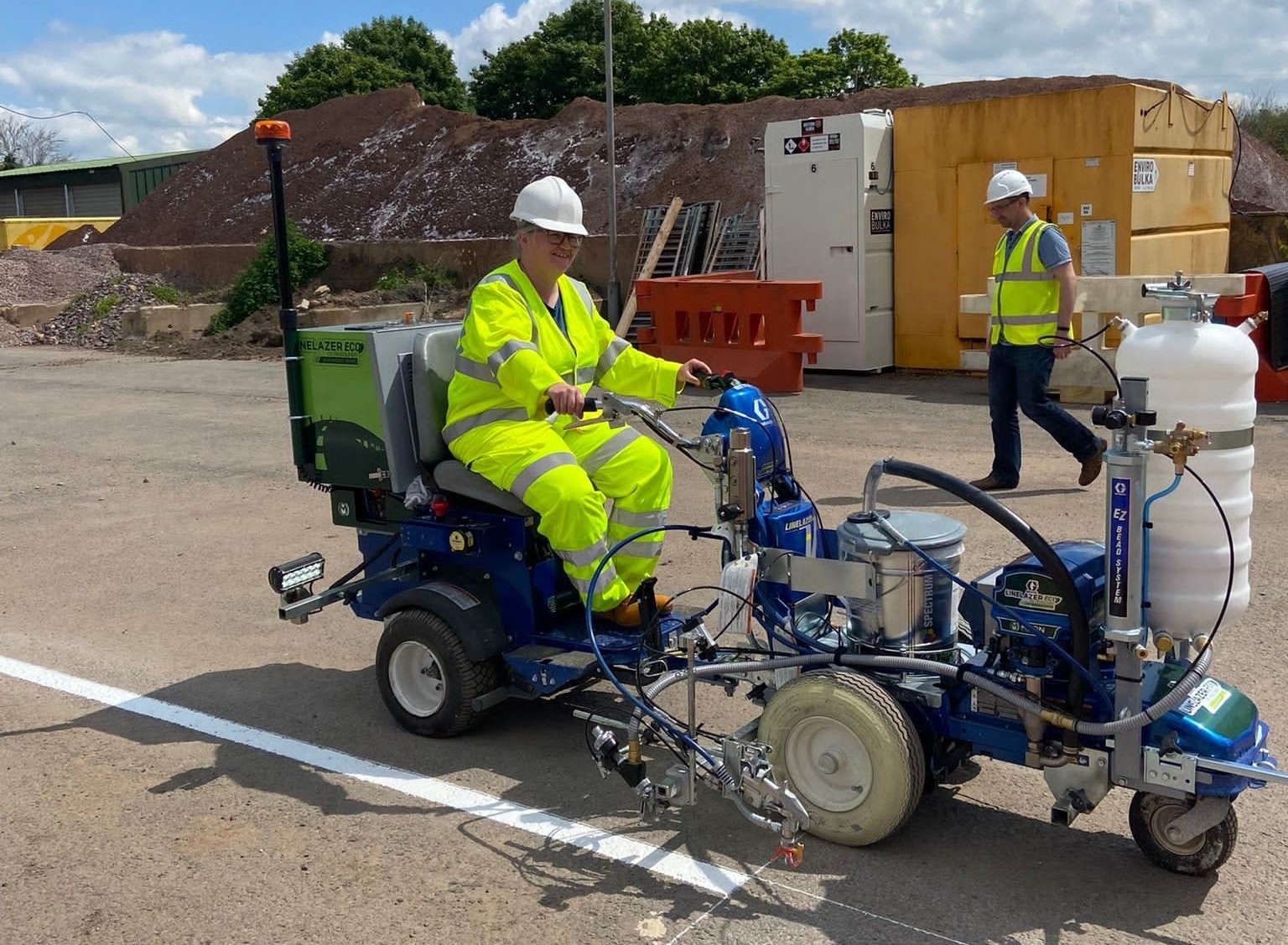
The UK and Republic of Ireland’s highways don’t just keep people and goods moving safely and efficiently – they offer lots of interesting career opportunities too.
Building and maintaining the UK’s highways is a huge undertaking. According to the RAC, there over 32,000 miles of major roads in the UK, making up 13% of all roads. An efficient, effective highway network is an important part of our economy – roads connect people to employment, health care, education and leisure, particularly in rural communities who depend on roads for economic growth. Keeping our road network in good working order is vital and each nation has its own dedicated road management agency to plan, design, build and operate major roads.
In the Republic of Ireland, the primary and secondary road network is some 5,306km long and is made up of motorways, dual carriageways and single lane roads.
Hundreds of workers carry out road improvements every day, following a carefully planned programme of maintenance. There are also roles available in planning and building new roads, with a variety of career options to help make sure this vital work is carried out safely and efficiently.
There are almost 32,000 miles of major roads in the UK
Motorways have the highest average traffic flow with 62,000 vehicles for each mile of motorway per day in 2020
Public sector spending on roads in the UK reached nearly £11 billion in 2020/21, with the amount spent on roads by local authorities being consistently higher than that spent on national roads
In the Republic of Ireland, €35bn of funding has been allocated for transport projects until 2030
There are a wide range of diverse career opportunities available to you in the Highways sector.
Highways
Highways
Highways

Having worked in the traffic management industry for 17 years, Piotr has completed all the NHSS12 courses and assessments and is currently studying for the Temporary Traffic Management Diploma to develop his highway engineering knowledge.
Three years ago, he moved to Chevron Traffic Management, part of an international group of traffic safety entities, and in his current role of Business Change Manager, he is responsible for overseeing the impact of new systems, procedures and other changes with wider audiences.
“A few years ago, I wouldn’t have been able to imagine myself in my current role. But learning about traffic management, business activities and technical knowledge has taken me to the point I’m at right now.
As with every job, there is a period when we need to be flexible with our approach towards the challenges. Managing change along multiple work streams can at times be very demanding. I am lucky to have a great support network and can always reach out for support to my line manager.
I would not be in the position I am today if it wasn’t for the training I invested in. All the courses I attended deepened my knowledge and skills but also allowed me to meet with some of the greatest people in the industry. Some of them helped me to progress my career which I’ll be always grateful for.
This is a great time to get involved with the traffic management industry as we move toward more green and sustainable practices. Streamlining processes could not be more important to me and the business I am working for. Working more efficiently through implementing technology is crucial and allows us to reduce the impact we make on the planet.
Where I go from here it’s hard to say. There are still areas of business change I want to explore and learn about. For those who are at the beginning of their traffic management journey, you are in a great place. It is a resilient and rewarding industry, so get stuck in and enjoy!”
After previously working in engineering for 16 years, Katie Brown embarked upon a change in career based on her passion for the environment and people. She gained a degree in Land Management (Conservation) from Moulton College in partnership with Northampton University, and after completing work experience and practical training courses as part of her studies, landed a job as a Countryside Ranger. Katie worked in this area for a few local authorities, but found it a challenge to gain permanent roles – this led to her becoming a Highways Delivery Technician, a role she has held for almost five years.
“I have always enjoyed engineering and practical tasks, as well as engaging with people. I have a keen interest in mapping, with an eye for visual graphs and problem-solving. I thrive on being adaptable, working on multiple tasks concurrently. My job allows me to enjoy my personal life and most importantly, it gives me a sense of worth. I was diagnosed with dyslexia later in my life, which means I am more comfortable in technical work as opposed to having to digest lots of words! My employer has been extremely supportive, providing me with the equipment and tools to help me in my job, such as a standing desk and speech recognition software.”
Katie’s role with Warwickshire County Council involves ensuring the local authority upholds its duty of care for safe traffic diversions while working with traffic management contractors.
“On a typical working day, I will receive applications for road closures, and need to ensure permissions from different authorities and the Highways Agency are in place, using their network for diversion routes. I mainly work from home, with around 50% of my time using different route management systems including GIS and national mapping. I need to identify any use clashes on the road network and try to resolve them by liaising with third parties. I ensure the network and diversion is safe, sending appropriate documents to the legal team, who in turn issue a legal order and site notices. I then ensure site notices are displayed and third parties including the emergency services etc., are informed of the closures and diversions. The least enjoyable part of my role is overly long diversion routes, as they can take up a lot of time!”
Regarding training and development, Katie has found that her employer takes investing in her career seriously. She has completed Sector Scheme courses and is currently undertaking a Basic Highways Maintenance course at Bath College.
“I have completed the Lantra Highway Sector Scheme 12D course to ensure I have the necessary technical knowledge and skills to be able to implement correct traffic management requirements. This training was challenging – it was more theoretical, and the exam was heavy going, compared to practical courses. Training is key for me to demonstrate competence and it allows growth beyond the job I currently hold. It helps me be more professional and deliver improved results. I aspire to be the best at my job that I can be – I want to understand what happens on the ground, specifically the practical work that contractors do, so I am fully informed in my role.”
“I’d sum up my role in these three words – interesting, dynamic, and best of all, supported.”
